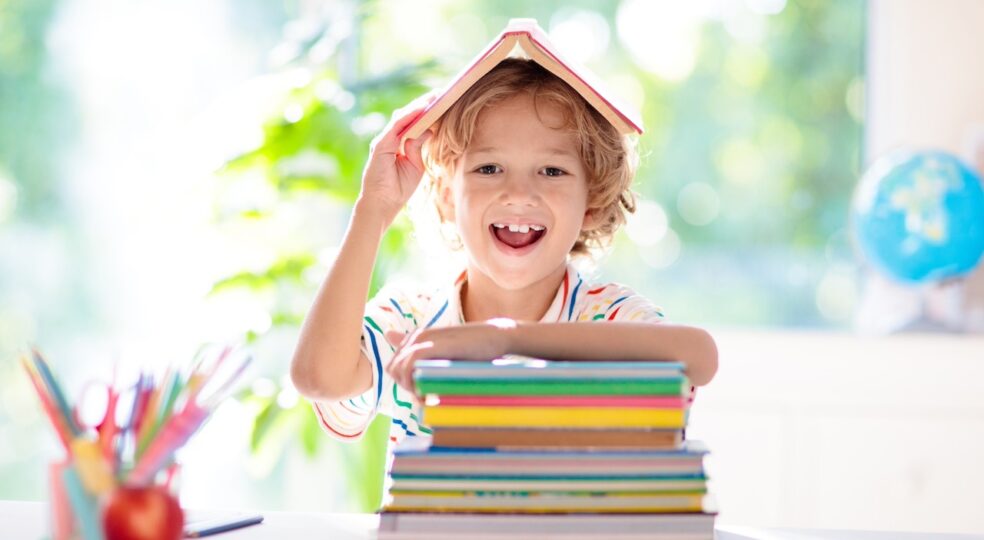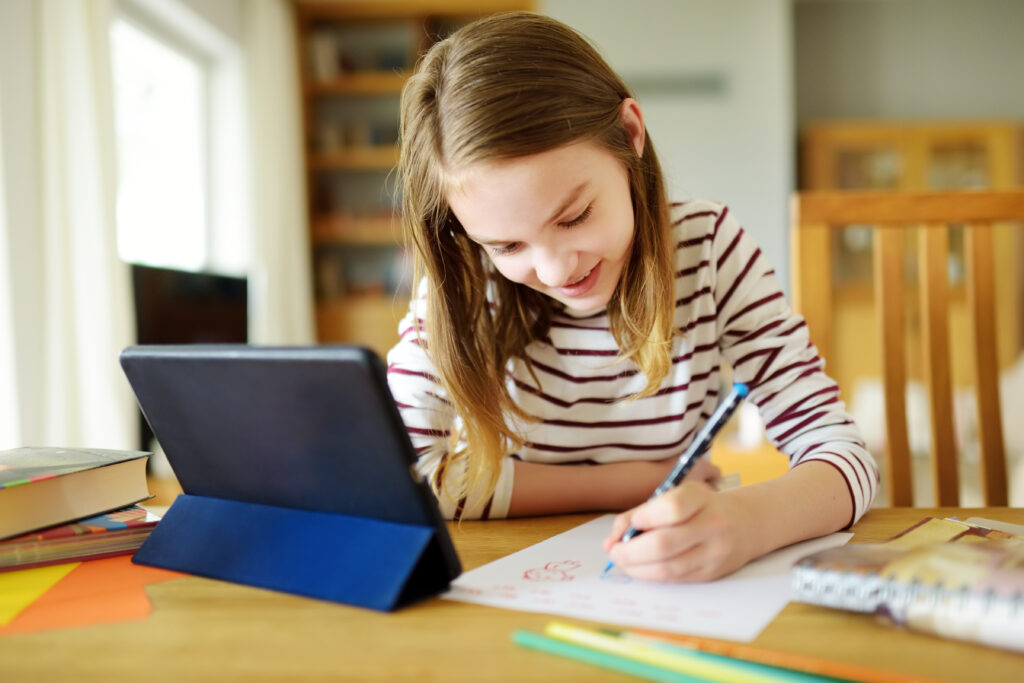
Learning with success sounds so easy. But you see this demand as pressure to perform. This is just as true for schoolchildren as it is for adults facing an exam. What is learning success anyway?
The explanation seems logical: You have learned something and you also keep it in your head. Maybe you can dive now or you know how to approach a mathematical task. Learning success therefore means the acquisition of new skills and/or knowledge. Thus it is an important part of further development -as can be seen from this Study ...that's what I'm talking about.
In the school context, learning success refers to the level of achievement attained by learners. This is in relation to the learning effort, the learning duration, the concentration on the relevant learning object and sometimes also the learning objective. Even outside of school and work, there is always something to learn. This ranges from complicated cooking recipes to learning foreign languages for a trip abroad to certain behaviors in sports or in dealing with other people.
Early learning successes in elementary school motivate children. But you can't always influence how successfully you learn yourself. Younger schoolchildren in particular are heavily dependent on the skills and attention of the teacher. The lessons themselves, the type of tasks, daily form and, of course, the classmates are important factors.
Later in life, it becomes clear how important personal learning ability is. Training, studies and career: Even as an adult, you can learn better if the conditions are right. The good thing is that you have some factors in your own hands. These include, among other things, your Self-awareness. If you know what you need to learn, you'll have the tools you need to move forward.
The 6 most important factors for successful learning are:

You want to know how the factors affect the Learning process influence? Then it's worth taking a look at the basic functions of the brain. That way, you'll find out under which circumstances you learn most effectively. The human brain works particularly well when you are in a relaxed and positive mood. Enough oxygen, a healthy eating, exercise and sufficient sleep are also important prerequisites for successful learning.
The realistic self-assessment helps you to correctly assess the skills you already have. What are your strengths and where are your weaknesses? Which topics are of particular interest to you and where do you still need to catch up? If you know yourself well, you can focus on the learning material.
Concentrated learning requires attention and perseverance. Some children are disciplined at school, but at home they can't concentrate. Too many things interfere with learning. Find out what those external and internal distractions are. With concentration exercises, you can get rid of the time thieves and troublemakers.
Motivation and learning success are closely linked. A teacher who properly motivates his or her students can bring out the best in them. But teachers are not solely responsible. Learning frustration can also have other causes. Perhaps it is the one's weaker selfthat destroys your discipline and motivation. At school, classmates may gossip about the nerds - this can also keep motivated schoolchildren from learning.
With a structured schedule motivation can be strengthened. Time management is also important for the learning process. How much time is there for homework, exam preparation and upcoming papers? Those who already manage their time well in school will continue to do so in their studies and professional life. To-do lists help you keep track of things and avoid getting into a time crunch. This also improves learning efficiency.
The Learning Strategy deals with regular learning on the one hand and preparations on the other. In the course of schooling, students often test out several strategies. Certain reading and memorization techniques make memorization easier. Graphs make it easier to see through some connections. Find out which Learning methods are suitable for your purposes. What are your previous exam experiences? What strategies have worked and what hasn't worked so well? Experimentation is okay and will move you forward. That, too, is learning.
Yours personal skills and resources are your strength. This is exactly where your interest lies, which in turn stimulates motivation. Do you enjoy foreign languages, perhaps also mathematical challenges or sports? Then your favorite subject is clear. When you take a closer look, you realize that you can use certain skills from your field for other subjects as well. This is also confirmed by this Study. Use your strengths and transfer them to other areas.
The influences on learning success begin with the definition of a specific learning goal. First, it is a matter of distinguishing between personal and externally determined learning success. Do you set a goal for yourself? Or is the learning goal dictated by a curriculum?
Your prior knowledge and your motivation are important influencing factors not only for your personal learning success. Guidance, if necessary in combination with sources and research work, also plays a role. Depending on the situation, the team can also influence personal learning success. And who determines learning success? In school, it seems easy to blame the teacher. But it is not only the relationship between teacher and student that influences learning success.
A quiet desk space is indispensable for successful learning. This desk should be neat and, ideally, ergonomically designed. Enough light, enough space: not every child has this opportunity. All the greater is the risk of Learning Difficulties.
Having your own desk promotes Concentration and has a positive influence on the learning process. However, there are also children who seek closeness to their parents. They feel more comfortable at the kitchen table and can concentrate surprisingly well. The television should be turned off, however. Learning with friends is also rarely successful: the distraction is too great.
Below you will find a short list of the most important influencing factors for learning success, divided into three main elements:
Personality of the person learning:
Environment/Situation:
Promotion
In certain phases, gender-specific aspects can influence what happens in class. This affects the learning success of the whole group. Especially during puberty, girls and boys seem to become distracted. In addition, many experts believe that boys have greater difficulty with cooperative forms of work and with their Self-organization have.
Girls can't do math - boys have little talent for language - these are outdated generalizations. Young people's problems concentrating are also independent of gender. Modern teachers avoid such generalizations and see each schoolchild as an individual character.
The results of a Meta-study prove how important high-quality teaching is for motivation to learn. The good Relationship to the teacher and a skillful transfer of knowledge are much more important than the gender of the schoolchildren. Family background is also less important if the teacher can motivate her students well.
Are there measurable successes in learning? For example, can you say that you knew 20 % before the learning program and 60 % afterwards? - No, learning success cannot be measured in this way. But when you increase your knowledge level, this change becomes visible. You have understood the logic of the math problem, you can now speak English much better than before.
Instruction is successful when students are able to use their achieve one's aim - or approach it.
To some extent, learning success can still be measured. There are three ways to do this:
Tests, exams and examinations serve as a proven means of control to measure the knowledge learned. This measurement is a results-oriented Procedure. The school grades represent a kind of evaluation.
Some schools do not use grades. Instead, teachers rely on student feedback. In adult education and team training, there is talk of 360° feedback. Colleagues, team members and supervisors assess each other's performance.
An analysis process measures the current situation and the target culture. When the goal is achieved, a survey of stakeholders takes place to measure success.
Learning with success is not a secret science. With certain learning techniques, you'll learn how to improve your Memory and turn your weaknesses into strengths. The e-book "The 10 best tips for fun and success in learning" helpful. The memory trainer Markus Hofmann teaches effective learning methods in it.
Check out Greator's many ways to get ahead. The tips show how children learn best and can be applied to adult learning as well. It's a fun way to learn that leads you and your kids to success.

